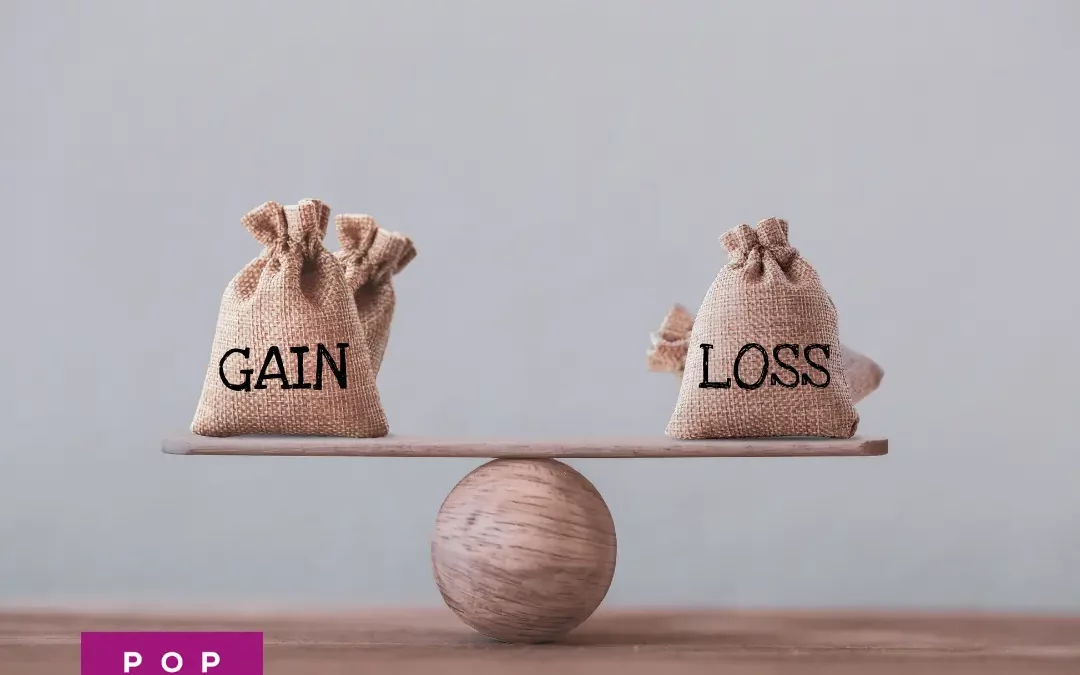If you truly want something, it’s not enough to simply declare it. There are a lot of ingredients that are required to make you achieve your goals.
Recently, I mentioned that only 5% of people who attempt to lose weight will get the weight off and keep it off.
Today, I’m going to share another statistic … only 7-8% of people that attempt to achieve a goal will succeed (according to a study done at Scranton University).
Both of those stats have fascinated me for years so I’ve done my best to understand them and to help people beat the odds.
My top 10 list of things you need in order to achieve your goals
1. Goal directionality
I really don’t like the concept of setting firm timeline / number based goals. Why? Because it sets you up for failure. It means you’re fighting against time and randomness and those are two opponents that are undefeated. When you’re bound by very specific numbers and timelines, you have very little margin for “life.”
Emmanuel Acho did an amazing TED talk on this topic. I highly recommend you check it out. It’s something that I’ve tried to articulate for a while but he does a much better job at getting the point across. The bottom line is … you need a north star. A direction. You need to know what you’re moving towards.
That way, you can make decisions based on what moves you closer to what you want. The destination? The finish line? Well, that usually just sets you up to push the goal post back.
I’m not saying there isn’t a time and place to set a goal that’s specific and time-bound (like running a race or competing in something). But most goals should be directionally and process-based.
2. Roadblock mapping
Once you know the direction / path you’re following, it’s important to identify all of the major roadblocks that could stop you in your tracks. If you’re not sure, just pull from past experience.
What threw you off the last time you tried to lose weight? Why did you stop going to the gym? What might go wrong this time?
The science of hindsight can help us to project potential stumbling points and come up with ideas to overcome them. It’s like when a client comes to us and says … I always do so well for the week and then the weekends just get away from me. Ok great, so we have to assess what’s happening each weekend and come up with strategies to make it easier.
You cannot predict every single potential roadblock but I guarantee you have a track record. And that can be really useful in avoiding some common pitfalls.
3. Small commitments create compounding interest
The greatest way to build confidence in yourself is to keep the commitments you make to yourself. The problem? Most people make bold and ambitious commitments that are easy to bail on.
Crawl before you walk. Self trust is earned through micro commitments like making your bed, drinking a glass of water in the morning, getting outside for a 5 minute walk each day, getting to the gym 2-3x per week, etc.
The micro commitments that you keep will compound over time and make you unstoppable. The biggest challenge here is patience and delayed gratification.
4. Do hard things
That’s what she said. Or that’s what he said? Either way, that’s what I’m saying.
Comfort kills. It’s important to find a way to challenge yourself every single day. Get uncomfortable. Push yourself.
I love strength training because it never gets easier, you simply get stronger. Find a way to challenge your body and/or mind each day. Lift heavy, run fast, walk with a weighted vest, take a cold shower, sit in a sauna, write daily, learn a new skill, etc.
5. Absentee Accountability is Amateurish
Alliteration aside, it’s the truth. If you are pursuing something without accountability, you are being an amateur. Imagine if your kid wanted to learn an instrument or get better at a sport or had a goal that was important to them …
The first thing you’d do as a parent was provide them with accountability in the form of a coach, trainer, mentor, teacher. Because you know the importance of accountability for others. But somehow you’re different?
Accountability shows up in every single research paper on goal achievement, habit formation, and behavior change. Trying to achieve your goals without accountability is amateurish. Don’t be an amateur.
6. Resource allocation
I did a whole podcast on a concept called “recapture and reallocate.” It’s basically where you look at the various resources you’re spending (time, energy, money, attention, etc) and you identify the areas where they are going to something that is not a high priority for you. And you recapture those resources and reallocate them to something that moves you closer to what you want.
A simple example is that we’ve had clients who wanted to join coaching and thought they couldn’t afford it. We spoke about resource allocation and they did an audit of their spending habits and found money that was going towards impulse purchases, subscriptions that they weren’t using, alcohol, dining out, etc. Then, they reallocated those resources to coaching which allowed them to reach their goals.
When you spend a resource somewhere, you eliminate an infinite number of options where that resource could be spent. So the question is … does the thing I’m spending this resource on move me closer to what I ultimately want?
7. Adaptability
Or as my good friend JK McLeod would say … adjustments over excuses. Sometimes following a plan with your head down is the worst thing you can do because it blocks you off from new information that may illuminate a more efficient path.
You MUST be adaptable and resilient. Maybe the 20 minute workout is a better option than trying to get in 60 minutes today. Are you going to call yourself a failure because you couldn’t train for an hour? Or are you going to adjust and be resilient to the situation?
Adaptability and resilience are learned traits. Practice them.
8. Never stop learning
Every failure comes with an important lesson. Every success comes with an important lesson. Be a lifelong learner. The more you know, the more you’ll realize how little you know. It’s such a beautiful thing.
There’s always another level. There’s always a new skill to acquire. You’re never a finished product.
However, be cautious of the information accumulation trap. Which is where you think you need to know everything before taking action. Paralysis by analysis.
Learn as you do. Learn by trying and failing. Learn through experience. You don’t need to know more to take action. You need to take action and then you’ll know more because of your actions.
9. Take pride in your physical body
This applies to any goal, even if it’s unrelated to health. Want to make more money? Get a promotion? Improve your relationships? Travel the world?
Actually give a shit about your physical body. The foods you consume. The way you move your body. The way you manage stress. The way you regulate your emotions. Your sleep routine.
Your body gets put through the ringer enough as it is. You don’t need to make matters worse by treating it like shit. No one can care for you. You have to care for yourself.
10. Your mind can move mountains
It can also be your prison. Depending on where you place your attention. Do you always see the negative in situations? Are you always looking for reasons why you can’t? Do you still feel like you lost, even when you’re winning?
Your mind is unimaginably powerful. You can train yourself to place your attention on positivity. You can instill self-belief through mindfulness practices. Your brain is not some random entity that is fighting against you.
It’s you that’s fighting against you. Which is a choice. You have to actively change it. When you recognize that your thoughts aren’t facts and your emotions don’t need to be immediately acted upon, you gain control of your destiny.
Well, there you have it. The perfect recipe for success in anything that you want to achieve in your life.
Which one resonates with you the most?? Are you empowered to achieve your goals?







